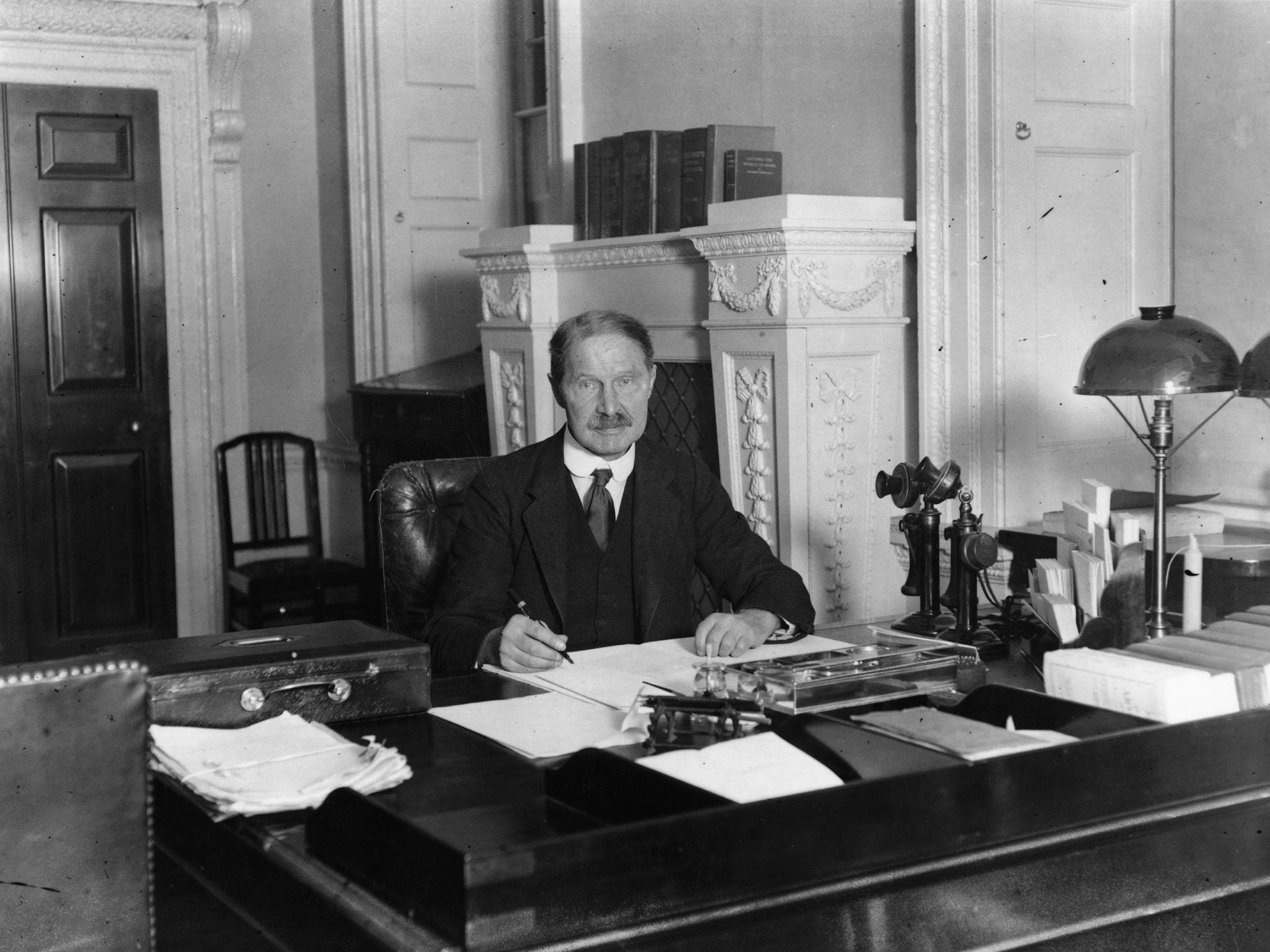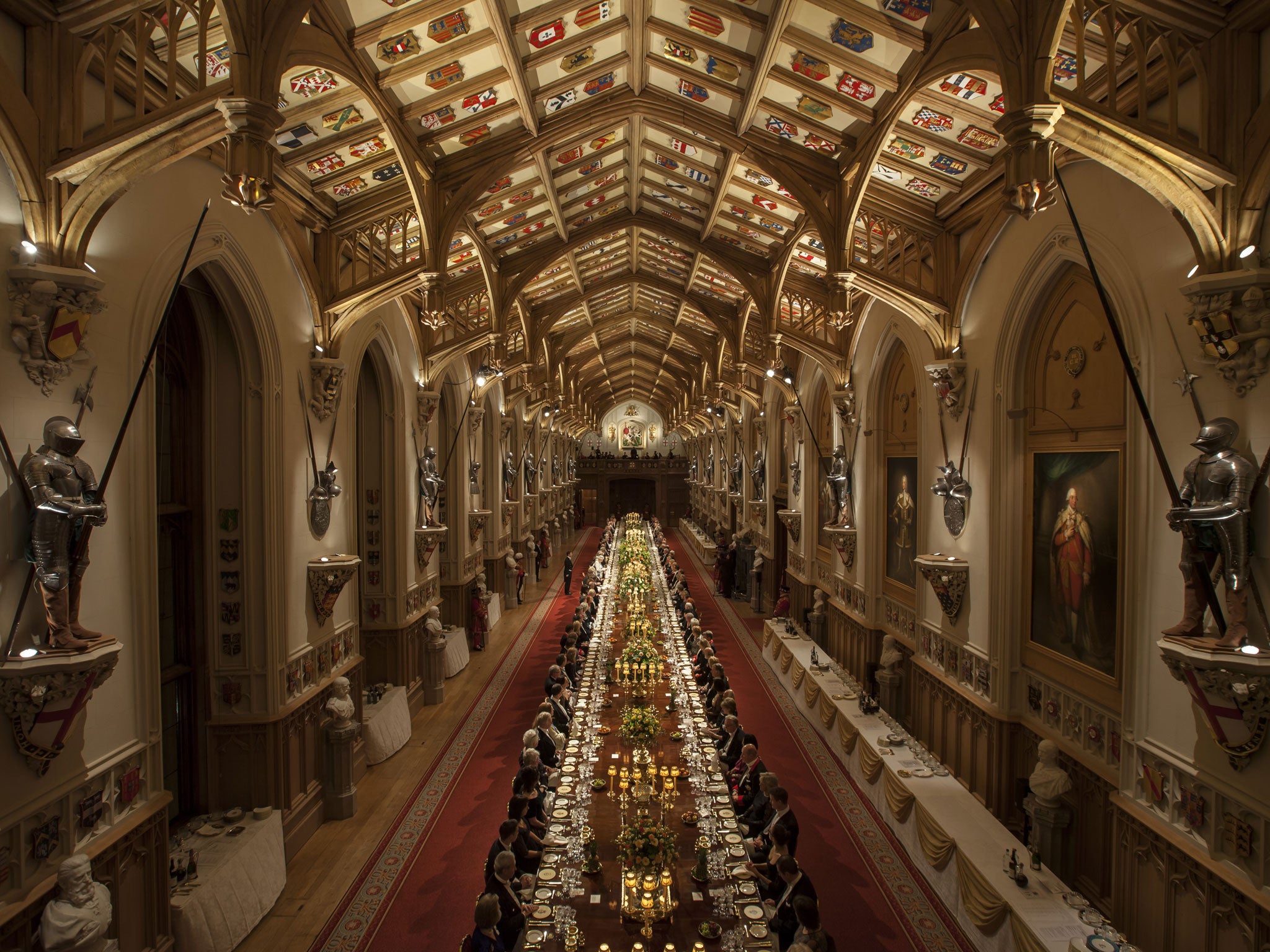Ireland’s forgotten revolutionaries: The Irish president’s meeting with the Queen was a landmark, but few acknowledge why peace took so long
Irish revolutionary politics were nothing new, but revolutionary nationalism triumphed as British politicians saw off the alternative

Your support helps us to tell the story
From reproductive rights to climate change to Big Tech, The Independent is on the ground when the story is developing. Whether it's investigating the financials of Elon Musk's pro-Trump PAC or producing our latest documentary, 'The A Word', which shines a light on the American women fighting for reproductive rights, we know how important it is to parse out the facts from the messaging.
At such a critical moment in US history, we need reporters on the ground. Your donation allows us to keep sending journalists to speak to both sides of the story.
The Independent is trusted by Americans across the entire political spectrum. And unlike many other quality news outlets, we choose not to lock Americans out of our reporting and analysis with paywalls. We believe quality journalism should be available to everyone, paid for by those who can afford it.
Your support makes all the difference.Obviously, it was overshadowed by Prince George in New Zealand – never try to compete with babies – but apart from that, was there any state visit so suffused with the feel-good element as that of the Irish president, Michael D Higgins, to Britain last week? It was a love-fest from start to finish. The Queen – possibly relieved to be entertaining someone as modestly-sized as herself – beamed unrestrainedly at Michael D.
He beamed not only at the Queen but at everyone in sight. For such a very good talker as the president, having to make seven heavyweight speeches in four days must have been heaven. He’s a poet and a sociologist, so he’s good at the kind of mellifluous circumlocution that invests Anglo-Irish relations these days.
But the fly in the ointment – at least so far as Tory pundits were concerned – was the presence of Martin McGuinness in this company. The Sinn Fein man was in all the footage of the state banquet at Windsor Castle – chatting with every appearance of amiability with David Cameron and Enda Kenny, the Irish premier – and again with the Queen at Windsor for a meeting of Northern Irish politicians, and finally tucked away at the back of the royal box with the DUP leader, Peter Robinson, at the jamboree for the president at the Albert Hall, alongside Prince and Princess Michael of Kent. For people such as my old friend, Stephen Glover, of the Daily Mail, it was all too much. If the Queen keeps company with Martin McGuinness, he wrote, it’ll be al-Qa’ida operatives next.
What no one from this end of the spectrum ever does is ask why Mr McGuinness exists. I mean, not qua human being – that’s over to God. I mean, why the militant republicanism he represents was necessary; why the constitutional options for dealing with the Irish problem took so long; why Sinn Fein trumped the Irish parliamentary party in the first place; why – in short – we got where we are now.
For the answer to that, we need to go back exactly 100 years. Well, a bit more possibly, but a century would do nicely. Because that’s when the last chance for resolving the Irish question peaceably and in a unitary fashion was stymied. It’s when the Third Home Rule bill granting self-government, excluding defence, to Ireland was passed, but leaving out Ulster, first temporarily and then permanently.
It was the last time for resolving the Irish Question by peaceful means and it was vitiated by a terrifying combination of violence and the threat of violence, not from Republicans, but from Ulster Unionists bent on ensuring that Home Rule would not apply to Ulster, or at least to the “plantation counties” – what turned into the six counties of Northern Ireland. Two previous Home Rule bills from Gladstone had already been seen off, the second by being blocked by the House of Lords.
And just when it seemed that Home Rule might finally happen, after the House of Lords lost its power of veto, British politicians gave way to the revolutionary methods adopted by Ulster Unionists – chief of which was the formation of a paramilitary army intended to resist the writ of parliament, equipped with guns and ammunitions run from Germany. In their resistance they were backed to the hilt by the British Tory party as represented by Bonar Law, a Presbyterian minister’s son. It must be said, though, that most of the British players in these events, incuding Churchill and Lloyd George, were influenced, like him, by an instinctive antipathy to Roman Catholicism. And without that recourse to physical force; to violence (which Britons invariably associate with Irish republicanism), the state of Northern Ireland would never have come into being. At least not the way it was constituted.

Not many people talk about the revolution of 1914, do they? But that’s what it was. And the implications remain quite devastating for anyone inclined to complacency about Britain’s model of parliamentary democracy, which is why these events really should be remembered.
The Irish historian, Ronan Fanning, has subtitled his recent book, Fatal Path (Faber, £10.99), about the decade 1912-1922, as: “British Government and Irish Revolution”.
Except that the revolution wasn’t primarily Republican, but Unionist.
“The term ‘revolution’”, he writes, “is rarely ascribed to the Ulster Unionists’ successful resistance to the third Home Rule Bill. Yet, given their rejection of parliamentary authority as expressed between 1910 and 1914 through the government’s democratic mandate in the House of Commons, in the creation and arming of the 90,000-strong Ulster Volunteer Force, in the establishment of a provisional government in Belfast in September, 1913, and in the mutiny threatened by an elite corps of British Army officers... and endorsed by the British Conservative Party in March 1914, a revolution it undoubtedly was.”
The mutiny he refers to here was the Curragh Mutiny. In response to the formation of the Ulster Volunteers and their successful shipments of guns and ammunition from Germany, the government decided to undertake a show of military force. But it ran into the flat refusal of British Army officers based in the Curragh to move against the Unionists, with whom they very much identified. The response of ministers was to capitulate. (The Army’s reaction was very different when Irish nationalists began their own gunrunning in response, on a much smaller scale: soldiers sent to deal with it fired on a crowed of Dublin civilians, killing four people.) George Bernard Shaw – a Dublin Protestant, and the single most articulate proponent of Home Rule and opponent of partition – was scandalised by the subversion of parliament. In the 1912 preface to his Irish play, John Bull’s Other Island (the one that amused Edward VII so much, he broke his chair laughing), he wrote about the shattering of his illusion that “Parliament... was still what it had been in the heyday of Gladstonian Liberalism, when it was utterly inconceivable that an Act of constitutional reform, which had been duly passed and assented to by the Crown, could be dropped into the waste paper basket because a handful of ladies and gentlemen objected to it, and the army officers’ messes blustered mutinously against it.”
Asquith, the Liberal prime minister, was not easily discomposed, but even he was perturbed by these events. In fact it is fair to say that by the time the Archduke Franz Ferdinand was assassinated in Sarajevo, ministers rather welcomed this chance to kick the Irish question into the long grass. Asquith wrote to his friend, Venetia Stanley, on 28 July: “What you say apropos of the War cutting off one’s head to get rid of a headache is very good. Winston [Churchill] on the other hand is all for this way of escape from Irish troubles, and when things looked rather better last night, he exclaimed moodily that it looked after all as if we were in for a ‘bloody peace’.”
The lessons of all this were not lost on Irish nationalists. The inevitable result of the success of Ulster Unionist tactics, and the capitulation of British ministers to the threat of force, was that the position of the constitutional nationalist leader, John Redmond, was terminally undermined. His Irish parliamentary party, which had held the balance of power in Westminster, was discredited even before the 1916 Easter rising.
Respectable parliamentarians looked increasingly ineffectual and were inexorably displaced by the revolutionary nationalists in Sinn Fein.
It’s interesting to speculate what might have happened to nationalist rebels such as Michael Collins, had the Third Home Rule bill passed. He’d probably have been a successful businessman. But it didn’t pass and the state of Northern Ireland came into being, as a “Protestant State for a Protestant people”. That was the context that created the politics of Sinn Fein and ultimately Martin McGuinness. Irish revolutionary politics were nothing new, but revolutionary nationalism triumphed because British politicians saw off the alternative. Yet, to a remarkable degree, these events have mostly passed over the radar of even educated Britons who take on board, in a Downton Abbey way, that Irish Home Rule and Ulster opposition to it was a big deal before the First World War.
Back to the present: during the Windsor Castle Banquet for President Higgins last week, the Queen promised, astonishingly, to her guest that “my family and my Government will stand alongside you... through the anniversaries of the war and of the events that led to the creation of the Irish Free state”.
Naturally, the centenary we’re thinking about this year is that of the Great War, but by rights, we should also remember what happened just before it. Sometimes, the recollection of history can be historic in itself.
Join our commenting forum
Join thought-provoking conversations, follow other Independent readers and see their replies
Comments